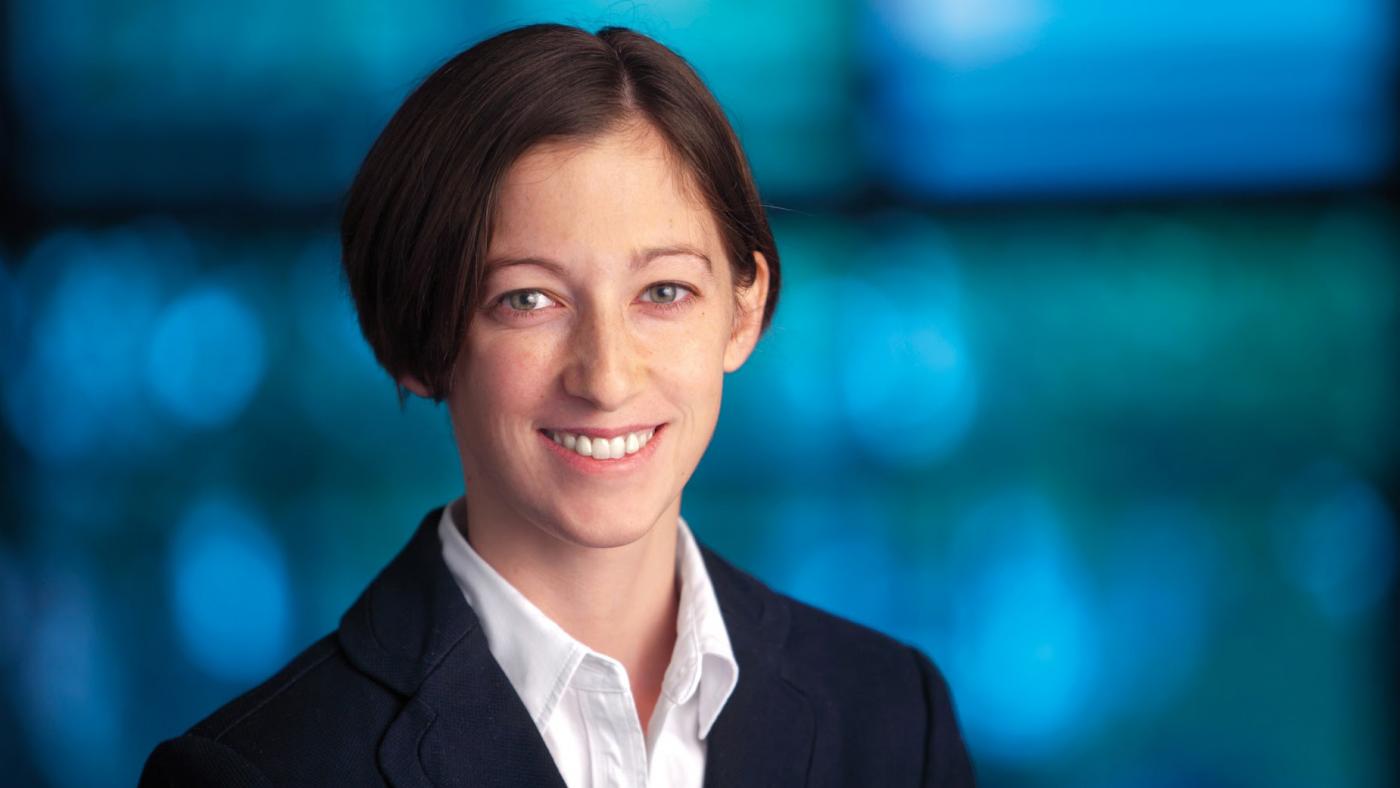In this talk, Dr. Basett will describe efforts to understand how human brain network architecture supports learning. As a concrete example, she will focus on motor sequence learning, and synthesize results across multiple non-invasive neuroimaging modalities and different studies to pinpoint the network markers of learning, and accurate predictors of future learning. This synthesis will motivate questions related to how cognitive control supports (or hinders) learning, thereby leading to a discussion of the potential utility of reframing notions of cognitive control as network control. In the second part of the talk, she will ask questions about how humans learn complex patterns in relational data. Dr. Bassett will formalize these questions within the mathematical language of graph theory, and describe recent empirical studies probing whether and how humans learn mesoscale structure in these patterns and which sorts of networks humans learn best.
Danielle S. Bassett is the Eduardo D. Glandt Faculty Fellow and Associate Professor in the Department of Bioengineering at the University of Pennsylvania. She is most well-known for her work blending neural and systems engineering to identify fundamental mechanisms of cognition and disease in human brain networks. She received a BS in physics from the Pennsylvania State University and a PhD in physics from the University of Cambridge, UK. Following a postdoctoral position at UC Santa Barbara, she was a Junior Research Fellow at the Sage Center for the Study of the Mind. In 2012, she was named American Psychological Association's `Rising Star' and given an Alumni Achievement Award from the Schreyer Honors College at Pennsylvania State University for extraordinary achievement under the age of 35. In 2014, she was named an Alfred P Sloan Research Fellow and received the MacArthur Fellow Genius Grant. In 2015, she received the IEEE EMBS Early Academic Achievement Award, and was named an ONR Young Investigator. In 2016, she received an NSF CAREER award and was named one of Popular Science’s Brilliant 10. In 2017 she was awarded the Lagrange Prize in Complexity Science. She is the founding director of the Penn Network Visualization Program, a combined undergraduate art internship and K-12 outreach program bridging network science and the visual arts. Her work -- which has resulted in 161 accepted or published articles -- has been supported by the National Science Foundation, the National Institutes of Health, the Army Research Office, the Army Research Laboratory, the Office of Naval Research, the Defense Advanced Research Projects Agency, the ISI Foundation, the Alfred P Sloan Foundation, and the John D and Catherine T MacArthur Foundation.
Faculty Host: Stefano Fusi, PhD, Associate Professor of Neuroscience; Principal Investigator at Columbia's Zuckerman Institute
For questions about the lecture, please contact [email protected].
Those who wish to meet the speaker during the visit should contact Stefano Fusi.
This seminar is part of the Systems, Cognitive and Computational Neuroscience Seminar Series at Columbia's Zuckerman Institute, which focuses on cognition and decision making research. Internationally renowned speakers present their recent work on these topics using behavioral, neurobiological and computational approaches. Seminars take place approximately every other week on Tuesdays at 4 pm in the Jerome L. Greene Science Center (9th floor).
